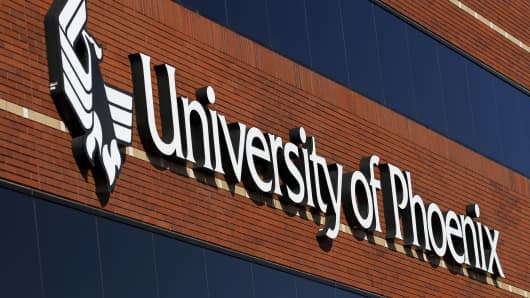After the market closed Monday Apollo group released news that its University of Phoenix's accreditation had been "reaffirmed" for 10 years by the Higher Learning Commission, which grants accreditation to colleges.
The news was viewed as a positive after the University of Phoenix, an online for-profit university, previously had been recommended for probation by a peer review team of the accrediting organization. Never mind that some of this was already mentioned on the company's last earnings call, several weeks ago, with further mention in its 10-Q, filed the same day.
But the release, which followed the Higher Learning Commission's final action letter, was by way of an SEC 8-K filing, the bare minimum legal requirement, rather than a trumpeted press release.
I believe it's almost always a red flag when an 8-K is used instead of a press release, especially with something as important as accreditation.
Apollo doesn't agree. Mark Brenner, senior vice president of communications and external affairs, says he believes the company has been "much more transparent" than any other company in the industry -- to the point of disclosing draft reports of the accreditation process as it has moved along. "I would argue we are the most transparent in the way we deal with the financial and investment community," he says.
To be sure, repeating what it has said in prior disclosures, the company included a full history of its road to securing its reaffirmed accreditation in its most recent 8-K. Here's a summary of the filing:
After explaining that its accreditation had been reaffirmed, Apollo gave a chronology of recent events, dating back to February 22, when a draft report of the Higher Learning Commission peer review team determined the University of Phoenix was not compliance with certain accreditation criteria. It recommended the school be placed on probation.



